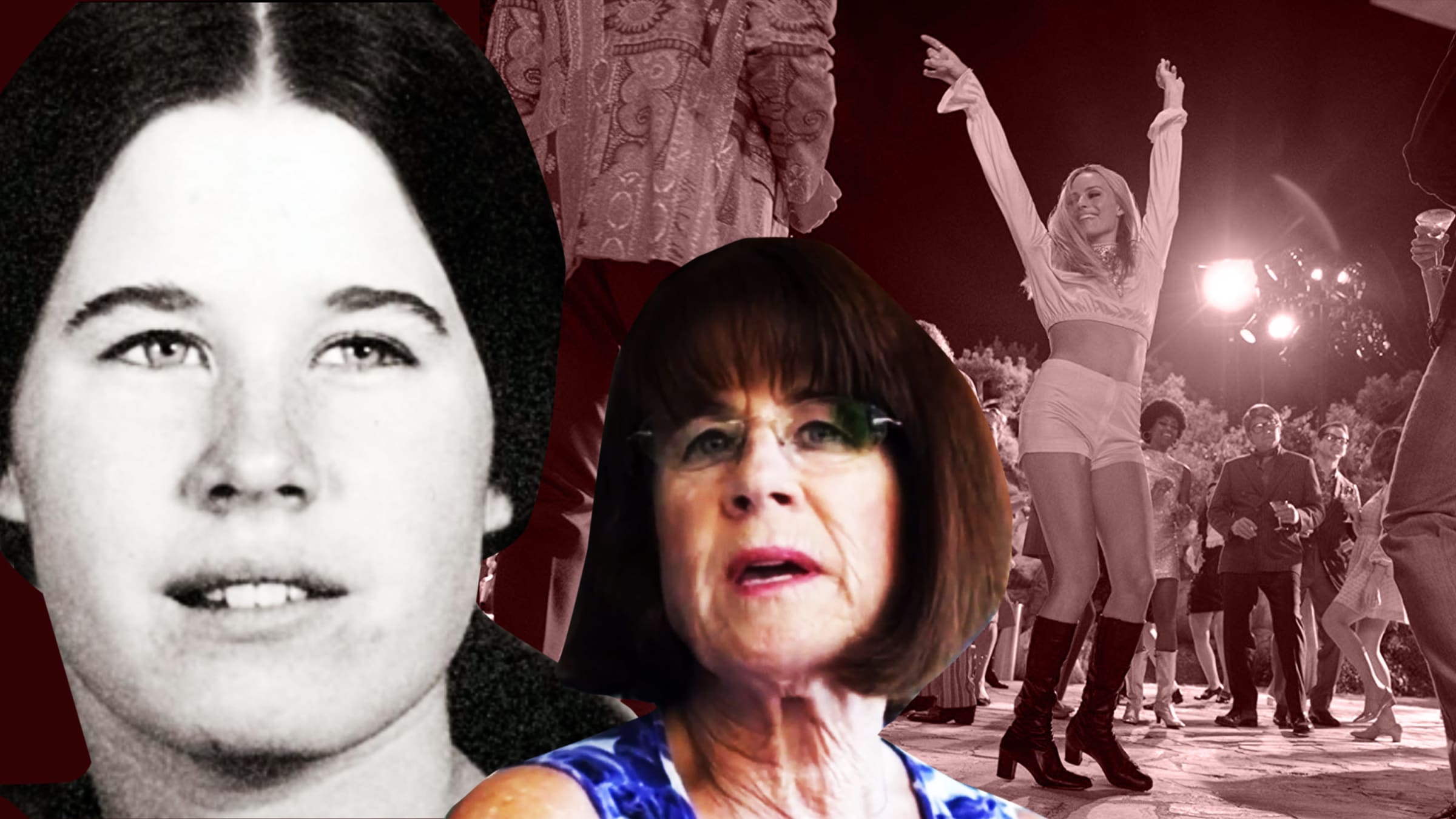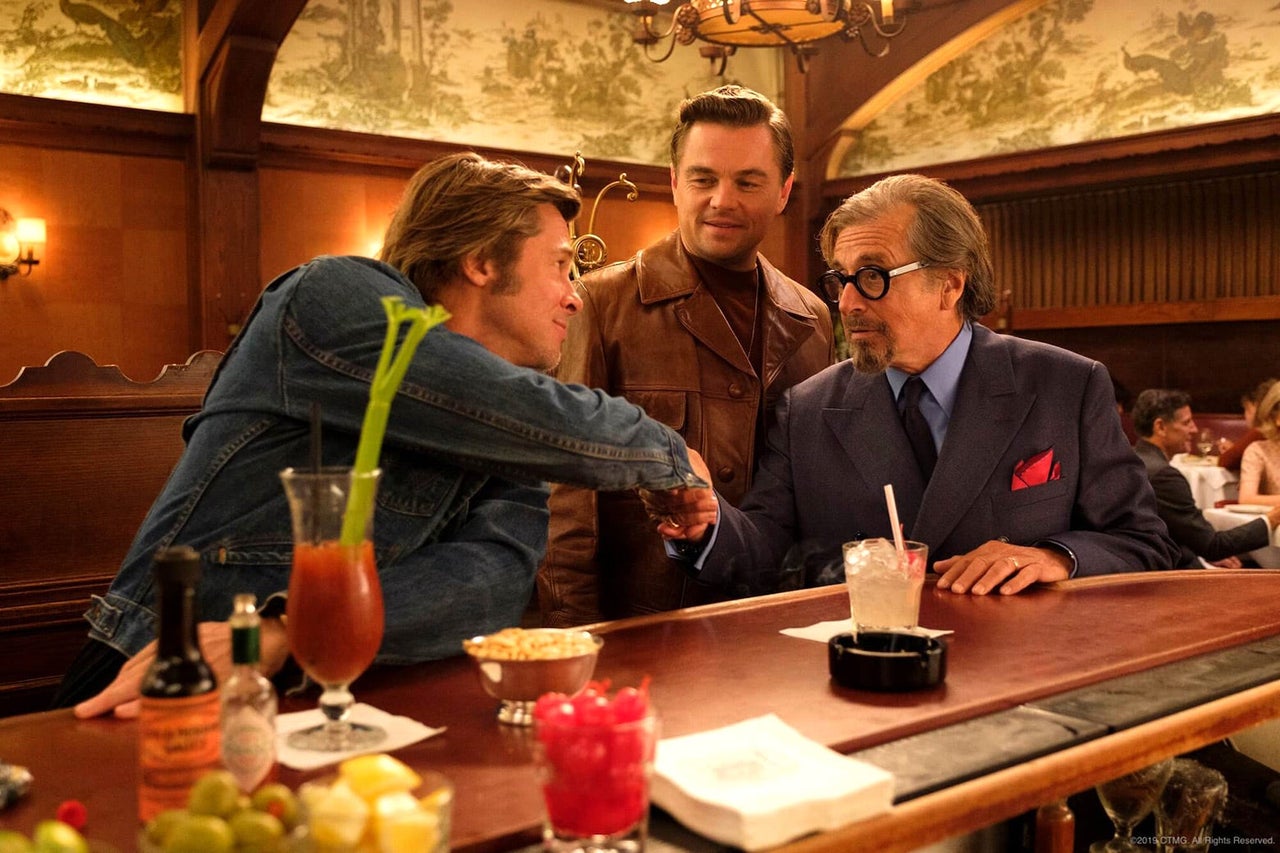The summer of 1969, a time of free love and counterculture, was forever stained by the brutal murders committed by Charles Manson and his “family.” Decades later, Quentin Tarantino, a director known for his stylistic violence and historical reimagining, brought this chilling chapter to life in his 2019 film “Once Upon a Time in Hollywood.” While the film is a fictionalized account, it masterfully crafts a narrative that both pays homage to Hollywood’s golden age and simultaneously reflects the unsettling undercurrents of Manson’s influence on the era.

Image: www.thedailybeast.com
Tarantino’s film is more than just a retelling of the Manson murders; it’s a deeply layered exploration of Hollywood’s history, the clash between idealism and cynicism, and the unsettling power of a charismatic cult leader. By weaving the Manson story into the fabric of this fictional narrative, Tarantino gives us a glimpse into the dark underbelly of a seemingly glorious period, challenging viewers to confront a side of history that we often prefer to ignore.
The Manson Family and Their Cult of Violence
Charles Manson, a charismatic but manipulative figure, managed to attract a collection of followers who, disillusioned with mainstream society, sought a new way of life. The Manson Family, as they were known, lived on a sprawling ranch in the San Fernando Valley, driven by a combination of Manson’s apocalyptic prophecies and their own desire for belonging. Their community was built on a rejection of conventional morality, with Manson at the center, wielding absolute authority over his followers.
Manson’s influence on his followers, particularly the women, was based on a complex mix of manipulation and psychological control. He presented himself as a spiritual leader, preaching a message of rebellion against a corrupt society. He instilled a strong sense of loyalty in his disciples, using fear, manipulation, and violence to enforce his authority.
The “Helter Skelter” killings, as they became known, were the culmination of Manson’s grand plan. The killings were meant to incite a race war, a prophecy Manson believed he had seen in the Beatles’ song “Helter Skelter.” On August 9, 1969, Manson ordered his followers to kill Sharon Tate, Roman Polanski’s pregnant wife, and four other people at Tate’s home. The next night, they murdered Leno and Rosemary LaBianca in their home.
Tarantino’s Reimagining of a Gruesome Reality
Tarantino’s “Once Upon a Time in Hollywood” is not a documentary; it’s a fictionalized account that uses the Manson family murders as a backdrop to tell a story about Hollywood, ambition, and the fragility of fame. The film stars Leonardo DiCaprio as Rick Dalton, a fading television actor struggling to stay relevant in a rapidly changing Hollywood, and Brad Pitt as Cliff Booth, Dalton’s loyal stunt double.
The Manson Family is introduced early in the film, and their presence casts a shadow over the characters’ lives. The film’s primary conflict arises when the Family targets Sharon Tate, a rising star in the Hollywood scene, who just happens to be the neighbor of Rick and Cliff. The tension escalates as the audience is aware of the impending tragedy, living in a constant state of anticipation.
The film’s depiction of the murders is not a straightforward retelling. Tarantino, true to his style, chooses to leave the actual violence off-screen, instead relying on the audience’s anticipation and knowledge of the events to build suspense. The impact of the murders is felt through the reactions of the characters and the atmosphere of fear that engulfs the film’s world.
Exploring the History Behind the Fictionalized Narrative
While “Once Upon a Time in Hollywood” is not a historical documentary, it draws heavily on real-life events and figures. Tarantino meticulously researched the Manson family, their lifestyle, and their crimes, grounding the fictional narrative in a semblance of historical accuracy.
The film incorporates real-life individuals and events alongside its fictional characters, creating a tapestry that blurs the lines between reality and fiction. Characters like Sharon Tate (played by Margot Robbie), Roman Polanski, and even Charles Manson himself make appearances in the film, adding to its sense of authenticity.
The inclusion of these real-life figures invites viewers to engage with the history of the Manson family in a new way. While we know the tragic outcome of Tate’s story, Tarantino provides a glimpse into her life, showcasing her charm, charisma, and aspirations as an actress. He also brings Manson into the narrative, but not as a terrifying villain, rather as a figure who, while undeniably charismatic, is seen as more desperate and pathetic than truly menacing.

Image: slate.com
The Importance of “Once Upon a Time in Hollywood”
Tarantino’s film is a powerful meditation on the darker side of American history and the lasting impact of the Manson family murders. By weaving this dark chapter into a fictional story, the director engages the viewer in the drama of a bygone era, while simultaneously providing a critical lens through which we can examine the underlying societal anxieties that contributed to the Manson Family’s rise.
The film is not just a retelling of a historical event; it’s a commentary on fame, ambition, and the fragility of life in the face of unpredictable forces. It encourages viewers to consider the ripple effects of events, how past events influence the present, and how the lure of belonging can lead individuals to commit terrible acts.
Once Upon A Time In Hollywood Manson Scene
Concluding Thoughts: A Legacy of Fear and Fascination
“Once Upon a Time in Hollywood” is far more than a simple film; it’s a cinematic experience that provokes conversation, contemplation, and ultimately, a deeper understanding of the Manson family and their impact on American history. Through its blending of reality and fiction, Tarantino gives us a unique platform through which to examine a dark chapter in our history, leaving viewers with a sense of both unease and a need to understand how the seemingly innocent glamour of Hollywood could be so tragically intertwined with such horrific acts of violence.
The legacy of the Manson Family remains a chilling reminder of the darkness that can reside within seemingly harmless communities. Through its compelling narrative and evocative filmmaking, “Once Upon a Time in Hollywood” serves as a potent reminder of the importance of remembering history, learning from the mistakes of the past, and recognizing the dangers of succumbing to the alluring promises of charismatic leaders.





